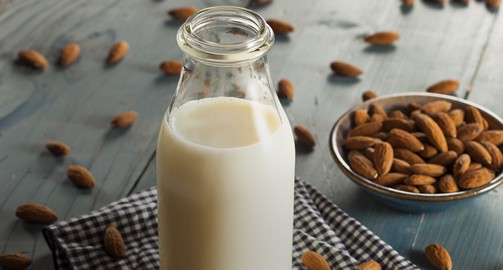What is lactose intolerance and why people around the world have stopped consuming dairy
With approximately 75% of the world suffering from it, lactose intolerance is a condition that occurs due to the body’s inability to break down lactose, a sugar which is found in dairy products like milk and yogurt.
The biological cause of lactose digestion is the presence of lactase in the small intestine. However, reasons such as aging, intestinal illness or injury, or heredity can cause a decline in lactase production. This deficiency causes lactose to remain undigested and move into the large intestine where it interacts with the gut bacteria resulting in digestive symptoms or lactose intolerance on milk/dairy product consumption.
Symptoms of lactose intolerance
Occurring between 30 minutes and 2 hours following consumption of milk or dairy products, lactose intolerance includes the following symptoms ranging from mild to severe based on the amount of lactose consumed:
- Indigestion
- Bloating
- Flatulence
- Diarrhea
- Nausea/vomiting
- Abdominal cramps
To alleviate these symptoms, it is advisable to stop consuming dairy altogether. For such people, plant-based milk products are always available.
Substitutes for dairy

Lactose intolerance cannot be treated as it occurs due to the absence of lactase. Going dairy-free remains the best and most effective way of preventing the effects of lactose intolerance. You can make milk, yogurt, cheese, butter from almond, coconut, soy, rice, flax, oat, and cashew milk. Or you can buy them from your local supermarket. Furthermore, non-dairy sources of calcium or calcium-fortified foods such as green vegetables and dried fruits can help maintain calcium intake.
Why you should avoid dairy
Research suggests that humans gradually lose the ability to digest lactose over time. Moreover, milk and milk products may not be suitable for everyone because the human body reacts differently, causing milk allergy in some and lactose intolerance in others. Additionally, the presence of contaminants such as pesticides, hormones, and antibiotics, along with a high saturated fat content that can cause heart diseases and lifestyle disorders, are also good enough reasons to quit dairy.
Several research studies have also linked increased dairy consumption to a higher risk of developing breast and prostate cancers. Moreover, a study showed that women who consumed high-fat dairy products such as cheese showed a 53% higher risk for developing breast cancer. Another study confirmed that women who consume high-fat dairy products have a higher risk of mortality if diagnosed with breast cancer. Contrary to common knowledge, research has also revealed that high dairy intake does not necessarily help maintain bone health and is shown to be associated with higher fracture rates and greater levels of oxidative stress.
Apart from the ill-effects of dairy on health, cows and buffaloes are inhumanely treated and exploited for the mass production of milk. Therefore, switching to a non-dairy, plant-based diet is the best way to ensure your own health and safety, while protecting the helpless animals.
Going dairy-free can not only help us maintain our health and keep lactose intolerance at bay but also promote compassionate living.
